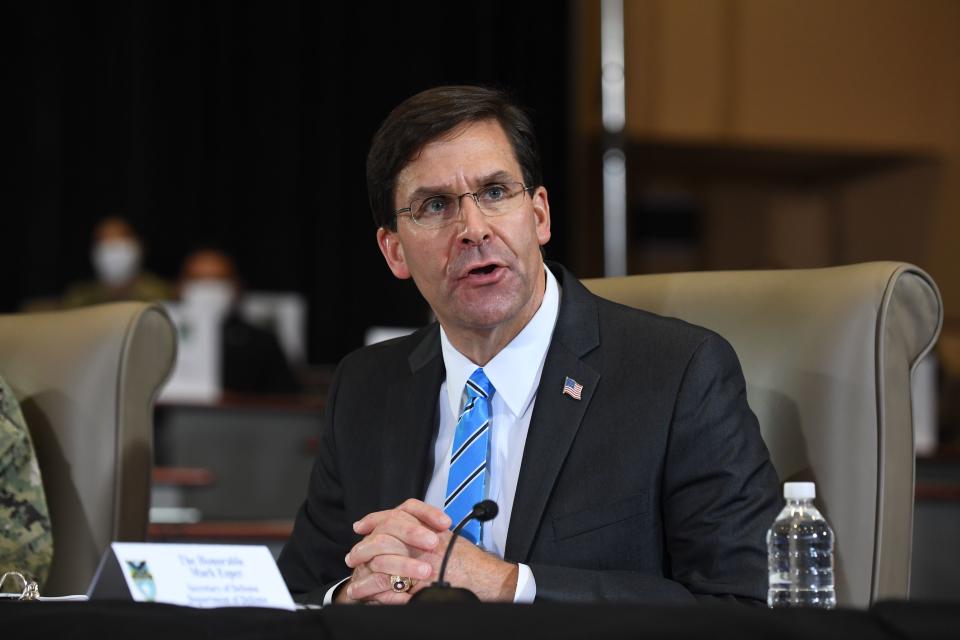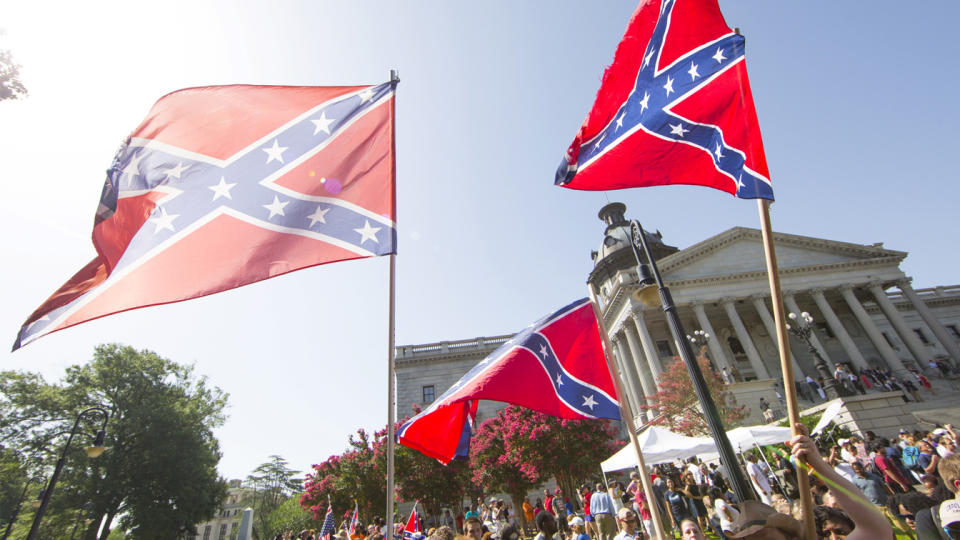Esper issues de facto ban on Confederate flags at U.S. military bases
Defense Secretary Mark Esper released a memo Friday that in effect bans the public display of the Confederate flag.
However, the memo, which never uses the word “Confederate,” also appears to ban a wide variety of other flags — from those representing colleges and sports teams to gay pride banners. None of those flags appear on an itemized list of flags approved for display at military headquarters and in barracks rooms.
Esper’s decision is the latest change to come in response to the nationwide protests that followed the killing of George Floyd by Minneapolis police and the resulting public discussion about racism and its legacy.

By prohibiting the display of the Confederate flag at military installations, Esper risks angering President Trump, who has pointedly avoided criticizing the flag or those who display it. CBS News reporter Catherine Herridge asked Trump on Tuesday whether he’d be comfortable with his supporters displaying the flag. “It depends on what your definition is,” Trump responded, “but I am comfortable with freedom of speech.”
Esper gave the White House advance notice that he would be issuing the memo, according to a senior Defense Department official. A White House spokesperson did not immediately return a request for comment.
“Flags are powerful symbols, particularly in the military community for whom flags embody common mission, common histories, and the special, timeless bond of warriors,” Esper wrote in his memo. “The flags we fly must accord with the military imperatives of good order and discipline, treating all our people with dignity and respect, and rejecting divisive symbols.”
The memo, which a Pentagon spokesperson said is effective immediately, goes on to list nine types of flags that are approved for display across the Defense Department. The list ranges from state flags to the POW/MIA flag to military service and unit flags.
Any flag not on the list is banned from virtually every location owned or leased by the Defense Department, according to the memo. Asked specifically whether the display of the gay pride rainbow flag, or flags representing sports teams or colleges, was now banned, Defense Department spokesperson Lisa Lawrence replied: “The Memorandum does not authorize public display of unlisted flags in the Department of Defense.” The new policy applies to barracks rooms shared by two or more service members, she wrote in an email.

Retired Army Gen. Carter Ham, president of the Association of the U.S. Army, said he supported Esper’s decision. “I think the Secretary’s memorandum is good, particularly in that it establishes DoD-wide guidance,” he wrote in an emailed reply to questions from Yahoo News. “That’s important so that servicemembers have some consistency in this policy rather than each Service, or subordinate commanders, each making their own rules on a topic like this that has garnered much national-level interest.”
Esper has established a three-stage approach to issues dealing with discrimination, prejudice and bias in the Defense Department. The first stage is what he terms “a short-term ‘sprint’ to identify immediate actions” that can be taken. The Pentagon has already taken several steps as part of this effort, including the removal of photographs from personnel files being considered by promotion and selection boards.
The second stage is the establishment of a Board on Diversity and Inclusion, which met for the first time at the Pentagon Wednesday. The third stage is the formation of a long-term Defense Advisory Committee on Diversity and Inclusion in the Armed Forces. “Diversity and inclusion make us stronger, not weaker,” Esper said Friday during a virtual town hall with Defense Department personnel and families.
_____
Read more from Yahoo News:



